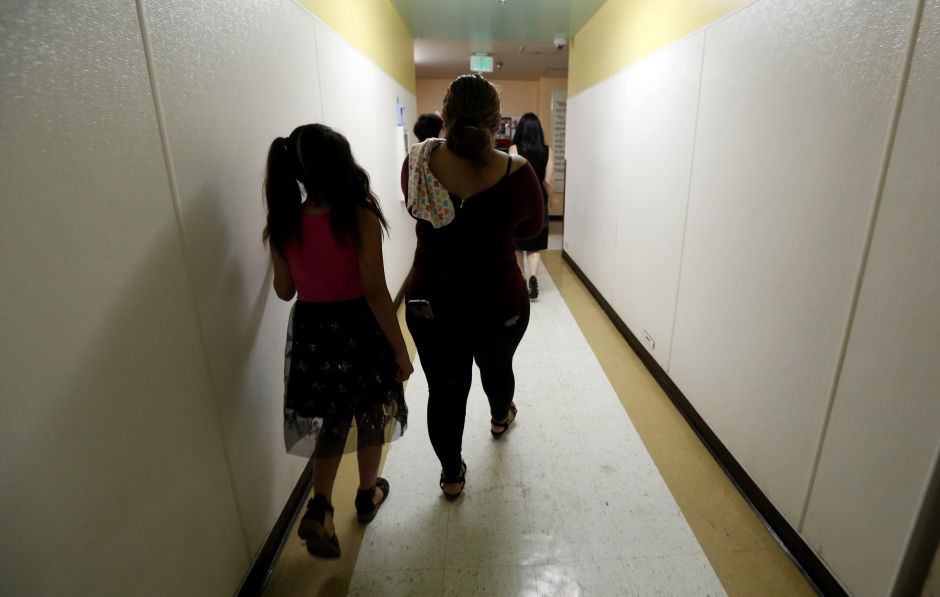More and more families with children and women add up to the number of homeless people in the county.
For Jessica Méndez, a mother requesting political asylum, it has been a respite to find refuge in a shelter of the Union Rescue Mission organization, even though it is located on Skid Row, a depressing underworld in the heart of Los Angeles where thousands of Homeless people on the sidewalks.
The Skid Row of Los Angeles has the largest population of homeless people in the United States.
"If they hadn't received me here, my children and I would be living in the street. I don't know what I would have done”, Says the immigrant from El Salvador.
“I knew about this place through a friend, but when I came I was disappointed to see all the people living in the street around the hostel. Did I bring my children to this? I was afraid to leave at the beginning. But another friend who lives here started to take me out. Then I saw different things. My children are seeing the good and the bad in this country, ”he says.
And he recognizes that I was very nervous. “It is not easy to adapt. But I was surprised to find institutions in this country that shake hands with strangers when you don't have friends or family, ”he says.
Life in the hostel at Skid Row is an experience you will never forget.
“Out there they offer drugs. We have heard experiences that because of addictions, many people have lost everything, their family, their homes, ”he says.
She on the other hand does not finish thanking God for having a roof and food for herself and her children.
“Let's get out of this. It is temporary and we are going to want it, ”he says.
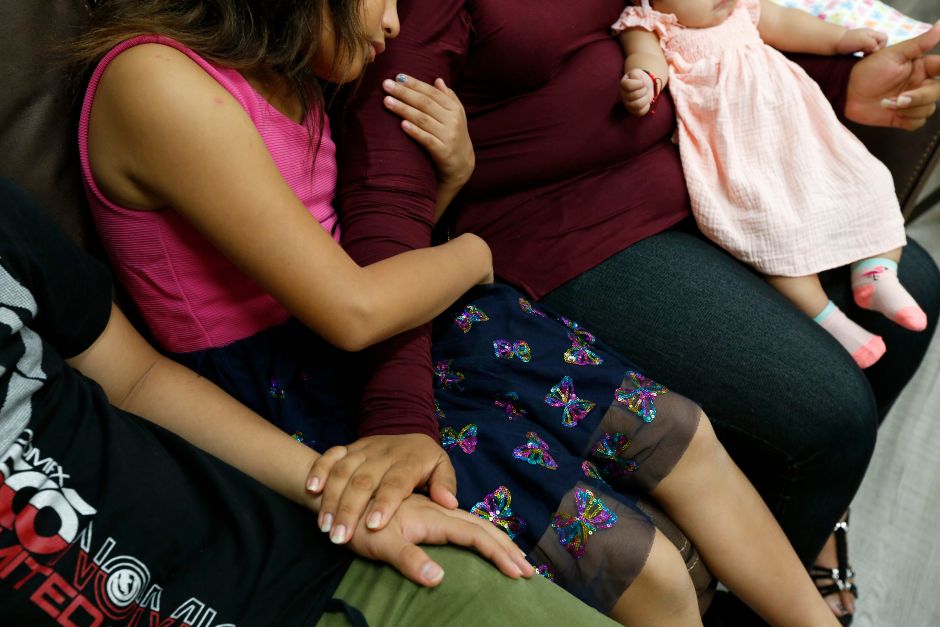
For a better life
Jessica entered the United States on January 1 of this year.
"We requested political asylum and they detained us for four days, but they did not separate us as a family," he says.
She came with her three children Paola, Lluvia and Enmanuel, but in her six month pregnant belly, another baby, Samara, was born on March 25 in Los Angeles.
The first days they arrived in Los Angeles they stayed with a friend. Since he could not host them for a long time, he took them to the Union Rescue Mission shelter.
“On January 10 we arrived at this mission. We have lived here since then. Here my daughter was born, ”explains the mother.
In El Salvador, Jessica had a small business where she sold pupusas. “My children are from different parents. One of them is in jail for abusing a girl. He was sentenced to eight years, has already been in detention for five years. From there he called me on the phone to take my daughter, ”he says.
However, he was afraid because the man walked in the guerrillas. “A lady told me that she could not take the girl to the prison. He always called and said things. I didn't know that I had another relationship and was pregnant, ”he explains.
Jessica says that the father of her newborn baby, emigrated to the United States before her, and that also encouraged her to emigrate.
“He has been detained in migration in Miami for several months. He has not had luck. He put the application to appeal his deportation that came out in May, ”he says.
In spite of everything, his hope is to meet his new partner in Los Angeles and live all in family. “If they deport him, I already told him that I will stay to fight my asylum. Maybe I can help you later. ”
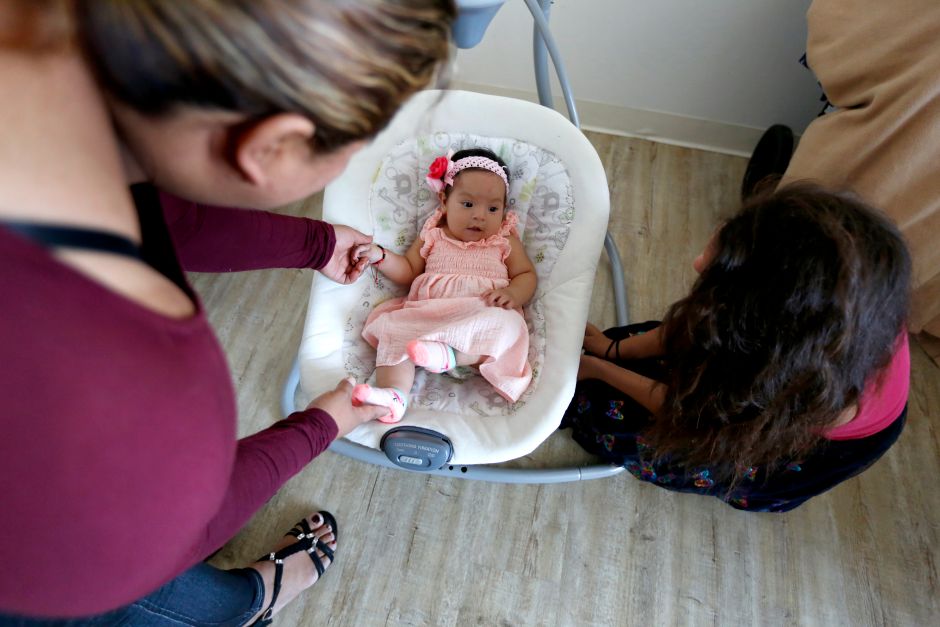
But it has not been easy for this mother to find legal assistance for her asylum case.
"We have no lawyer. We went to a non-profit organization. They told me they were not taking asylum cases. And not having a work permit makes things difficult for me, ”he laments.
Feeling safe in this country is something that motivates her. She is also convinced that there are more opportunities here for her children who already attend school. His eldest daughter, 19, studies at the Adult School. “I left El Salvador because I want to give them a better life and protect them from the violence of my country. It has been very difficult for them. We had to leave everything. ”
But his greatest desire is to fix his immigration status. Jessica has a previous deportation. "In 2014 I tried to enter the country, but the immigration agents grabbed me and deported me," he says.
While defining her legal situation, she is grateful to have a roof, food and school for her children.
"This shelter has been my salvation table. All who work here are very good people. ”, He says.
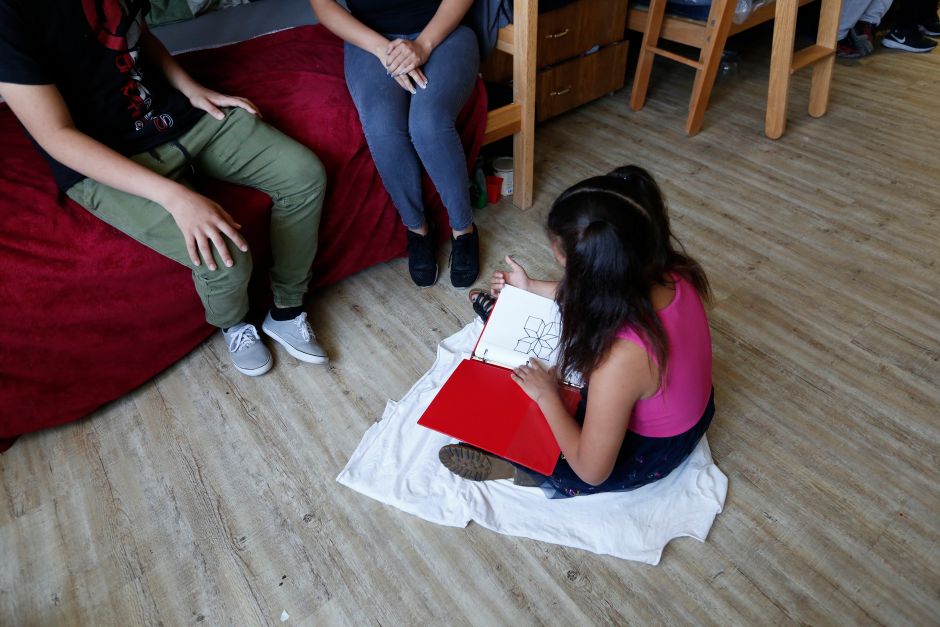
Sanctuary Hostel
Alexandra Monsibaez, spokeswoman for the Union Rescue Mission says that this refugee mother is not the first case of an asylum seeker or refugee who is being sheltered.
"We are a shelter Sanctuary. Executive director Andy Bales has said that if Migration arrived here, he would stand at the door and not let anyone in”, He says.
“Here it doesn't matter what the government decides in Washington. No one will be thrown into the streets. The refugees came to this country because in theirs it was very difficult and they were looking for a better place for their children, ”he observes.
In the shelter along with Jessica, there were four asylum-seeking mothers from Honduras, Mexico and El Salvador.
Union Rescue Mission is a private organization that lives only from private donations, and does not accept government assistance.
They currently have more than 70 homeless families with more than 150 children who are their children. “20% of families are Latino,” says Alexandra.
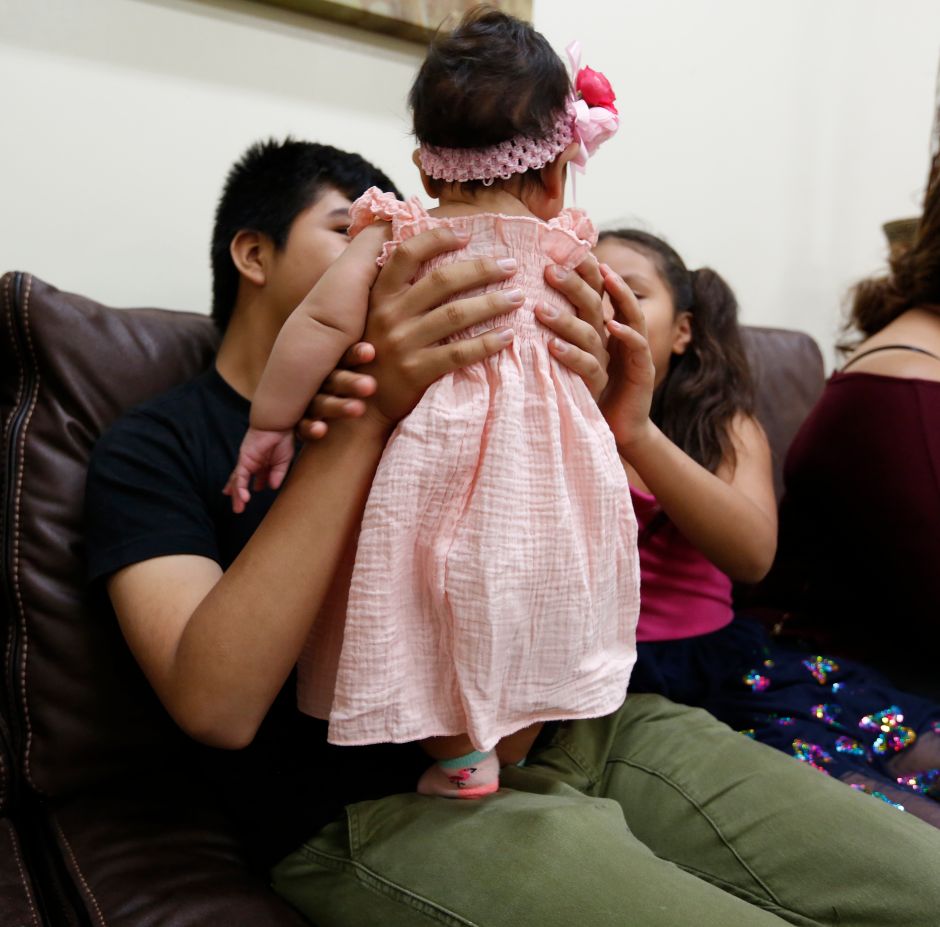
Families and women
In the last year, Union Rescue Mission has noticed an increase in homelessness among families and women. “The income of the houses is very expensive; and families can no longer reach out to their relatives as before because there are very clear rules on the part of tenants that only a certain number of people are allowed. Families do not want to lose their apartments for helping other relatives, ”he says.
The 2019 Los Angeles Homeless Count of the Los Angeles Homeless Authority (LAHSA) revealed that there are 8,799 families in the county without a roof. Of those, 7,111 live in shelters and 1,688 on the street or their cars.
“There was so much demand for a roof for families, that last year we filled the gym with air beds. We have capacity for 1,200 beds, but we have reached up to 1,500 people, ”he says. And he says that Union Rescue Mission is the only organization for homeless people that accepts families.
These can last for years in the shelter or six months, three months. “The length of stay in the hostel depends on each family. Each case is different. The problem of the homeless cannot be solved with a general solution, ”he considers.
In this shelter, the homeless receive medical, mental health, dental and legal services. But they also give them courses and help them find a job and a roof.
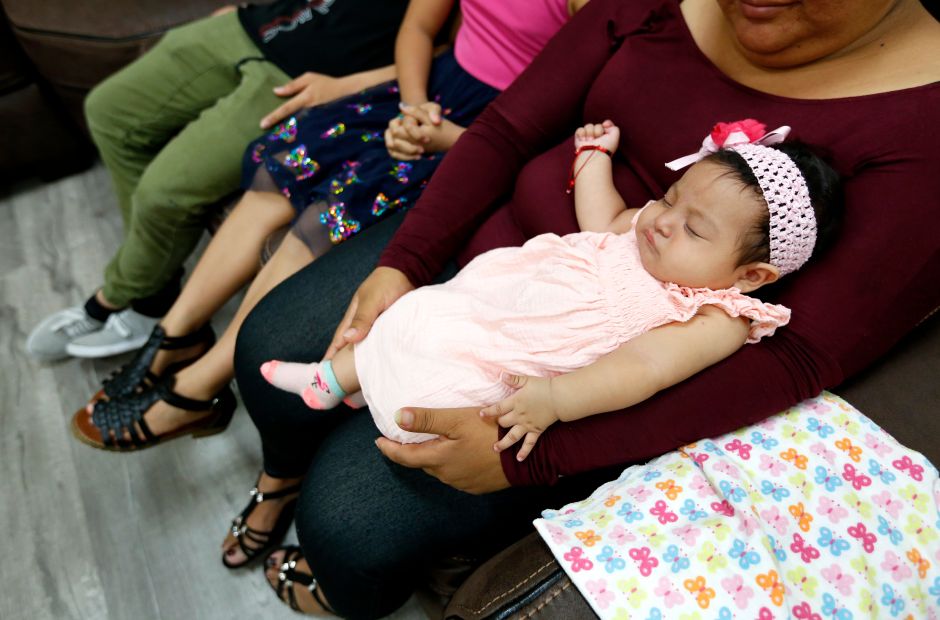
Four-month-old Samara sleeps peacefully in the arms of her mother Jessica without imagining all the challenges her family goes through in search of asylum in the United States. (Aurelia Ventura / The Opinion)
We can all help
Alexandra thinks that not enough is done to help the homeless. "In Los Angeles County we have no shelters or beds so that the homeless have nowhere to go. 75% live on the street compared to New York where only 4% spend the night on public roads ”add.
And he emphasizes that the government put a lot of emphasis on helping homeless veterans when men, women with children and all the homeless should not only help a group.
Alexandra calls the Angels because she believes we can all help solve the homeless crisis. “We are seeing the homeless camps throughout the city. So we need to do something individually. If we can't donate a dollar, we all have something we can donate as clothes we wear. We occupy donations. We don't have help from the government, ”he concludes.
On Sunday, look for the fourth of five parts of the series on homelessness: Older adults leave the street for a safe roof

